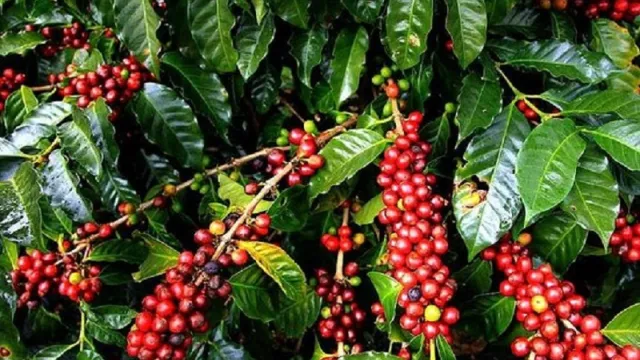Kenya’s coffee export industry experienced significant growth in 2024, with shipments increasing by 12% to 53,519 tonnes, up from 47,861 tonnes in 2023, according to the Kenya National Bureau of Statistics (KNBS).
This expansion was fueled by rising demand in key global markets and strategic government interventions aimed at revitalizing the coffee sector.
The country earned Kes 38.4 billion (US$296.8 million) from coffee exports in 2024, marking a steady rise from US$251 million in the previous year.
The second and third quarters recorded the highest export volumes, with 15,903 tonnes and 17,017 tonnes shipped, respectively.
Government Reforms Driving Growth
Kenya has embarked on ambitious reforms to double coffee production within the next four years. These initiatives include:
- Prompt payments to farmers to enhance cash flow and encourage production.
- Subsidized fertilizer to reduce input costs.
- Affordable loans under a US$27.1 million revolving fund to support coffee growers.
As a top foreign exchange earner, coffee continues to play a crucial role in Kenya’s economy, alongside tea and horticulture.
To sustain momentum, the Kenya Agricultural and Livestock Research Organisation (KALRO) has launched a national coffee planting campaign, aiming to triple coffee seed production from 5,000 kg to 15,000 kg by the 2027/28 farming season.
KALRO’s Deputy Director-Crop, Dr. Felister Makini, emphasized that coffee ranks fifth in Kenya’s foreign exchange earnings, following diaspora remittances, tea, horticulture, and tourism.
Expanding Markets Beyond Europe and North America
To further strengthen its global position, Kenya is actively exploring new markets in Asia and the Middle East, moving beyond its traditional focus on Europe and North America.
In February 2025, Kenya hosted a high-profile delegation of Asian coffee buyers at the Africa Coffee Trade Fair. The event attracted over 50 importers from China and South Korea, fostering trade partnerships and positioning Kenyan coffee as a premium product in Asia’s rapidly growing specialty coffee market.
Africa’s Coffee Industry Gaining Global Traction
Kenya’s coffee success is part of a broader African coffee boom. Ethiopia, Africa’s largest coffee producer, surpassed US$1 billion in revenue in just seven months of the 2024/25 fiscal year. Originally targeting 156,190 tonnes in exports with an estimated revenue of US$805.56 million, Ethiopia exceeded expectations, exporting 223,046 tonnes and generating US$1.011 billion—127% of its financial target.
The Push for Value Addition in African Coffee
As African coffee exports grow, industry leaders are advocating for value addition to maximize economic benefits. During the 3rd G25 African Coffee Summit in Dar es Salaam, policymakers called for moving beyond raw bean exports and investing in coffee processing and branding.
Tanzania’s Minister for Agriculture, Hussein Bashe, urged African nations to integrate coffee into their local cultures and increase domestic consumption, citing Ethiopia’s successful coffee culture as a model for growth.
Kenya’s 12% growth in coffee exports signals a strong trajectory for the industry, backed by government reforms, new market expansion, and increased global demand. However, to maximize returns, the country must invest in value addition and branding, ensuring Kenyan coffee competes effectively on the global stage.
With rising exports, strategic partnerships, and government support, Kenya is well-positioned to become a dominant force in the global coffee trade.











































